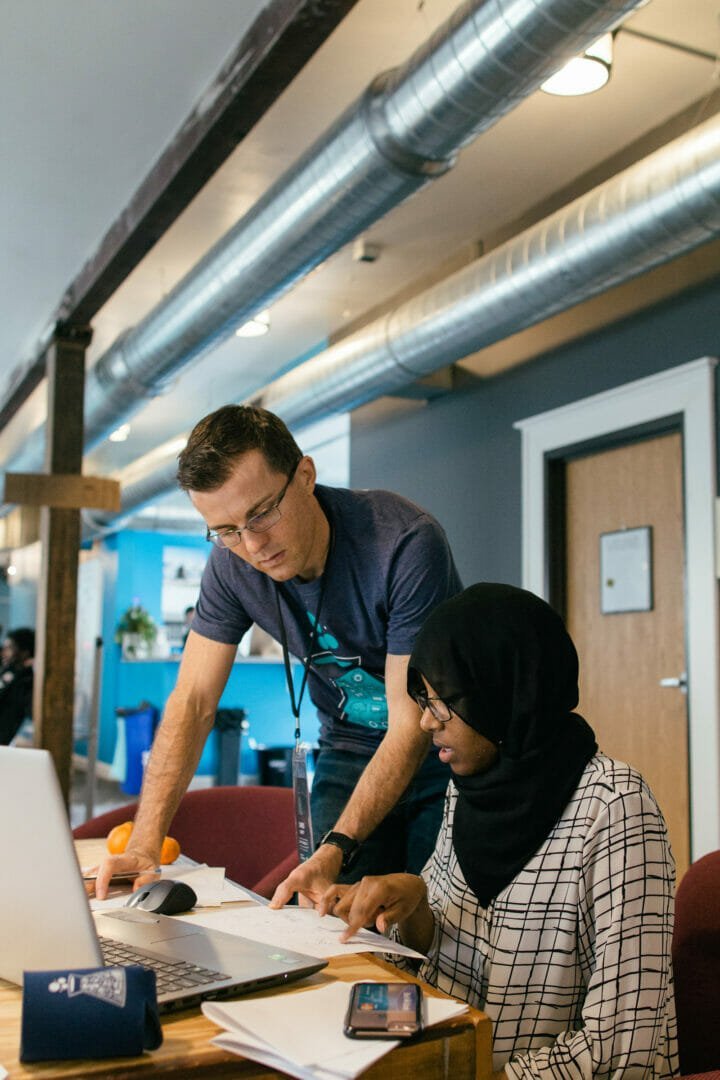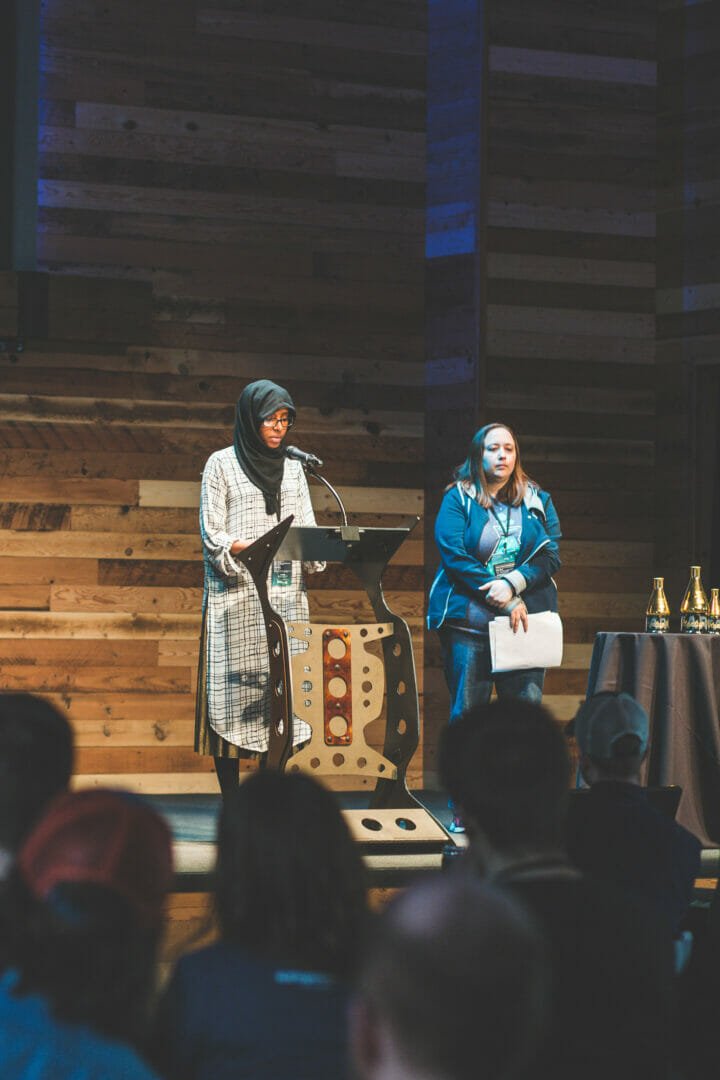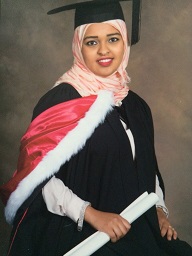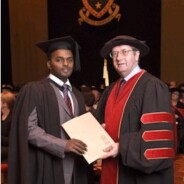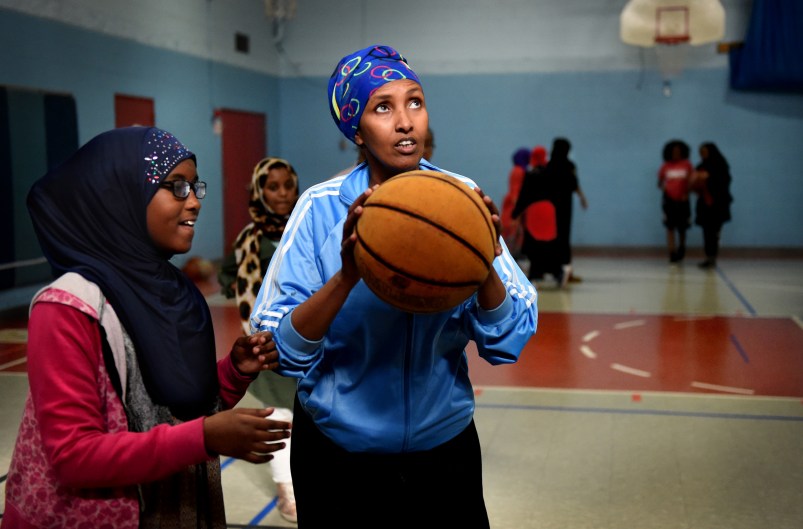Jamila Gordon: The CIO who escaped the Somali Civil War
“There’s literally nothing that can happen in business that can even compare to the challenges I faced early in my life."
Somalian born senior tech executive Jamila Gordon, owes her life to her quick-thinking father. Just before the Somali Civil War broke out in 1991, he had the foresight to move the family out of Mogadishu before they would have faced certain death at the hands of armed rebel forces looking to overthrow the Barre regime.
“The Somali Civil War had not quite started but my father was a smart person and realised that if he didn’t get us all out, we would all be killed, and he was absolutely right. Every person who didn’t get out of [Mogadishu] at the right time was killed – relatives, friends, neighbours, people I knew because they didn’t react early like my father did,” Gordon tells
CIO Australia.
Prior to the outbreak of war, Gordon spent her days working in her father’s shop counting how much money he had earned and spent each day. She took responsibility for the family very early in her life, even as six-year-old living in the Somali hinterland with no running water or electricity.
Before the family moved to the coastal city of Mogadishu due to drought, Gordon, the eldest daughter, was responsible for running the household and looking after her brothers and sisters.
“My mother had 16 children, two died young and I was the second oldest. I was expected at a very young age to help my mother,” she says.
Her family was poor but she remembers fondly a childhood full of kindness and happiness.
“I also remember it being a beautiful place – it’s sad to see people from the Western World looking out now thinking it’s all doom and gloom. But if there are no wars and you don’t have anything threatening you … I remember it being good.”
Despite escaping imminent war, Gordon’s resilience would be tested as her family became scattered around the world as refugees. At 18 years of age, she ended up in neighbouring Kenya with distant relatives she had never met before. Gordon’s father was orphaned when his mother, given to her grandfather as a gift, gave birth to him when she was 13 years old and ran away.
“She ended up on the border to Kenya; she remarried and had a couple of kids. One of her sons was in Mombasa [Kenya] – my father’s step brother who I had never met and through this process, we found him,” says Gordon.
Gordon spent just under a year in Kenya during a period she describes as the hardest time in her life.
“I was in limbo, I had made a lot of good friends, the Somali relatives really didn’t want me there because they didn’t have enough money or means to take care of the young woman who didn’t have anywhere to go back to. It was the hardest thing I have ever done, I was moved between different houses with relatives and friends, mainly Kenyan friends,” she says.
Despite facing incredible odds and separated from her birth family, Gordon admits her “life was probably saved again” this time by an Australian backpacker who got her out of Kenya and to Australia where they married.
“When I got here the first thing I wanted to do was learn English. I had some exposure to the language in Kenya. In Australia I would talk to people and they would walk away because they couldn’t understand what I said. My English was very limited,” she says.
Counting on a new life
Upon arriving in Australia, Gordon began a nine-month course in English at a TAFE college in St George, Sydney before moving to the Gymea campus to complete a diploma in accounting. She dreamed of attaining a university degree after meeting a girl who got a job at the Australian Taxation Office.
“I came from a culture where women didn’t work so to watch this young woman finish university and get a job at the ATO was inspirational. I wanted to be exactly like her.”
Gordon studied a Bachelor of Accounting at La Trobe University in Melbourne and this is where she found her passion for programming and IT.
“I had one programming elective and I fell in love with it. A lecturer at the university said ‘you’re obviously good at programming, just follow your passion'.”
Gordon’s obvious ability to cut code landed her a role as a software developer at QSP Software in 1995. To score her first role, she was required to sit a logic and algorithm test. She scored 100 per cent.
An opportunity to travel the world in this role was music to Gordon’s ears.
“All my life I wanted to travel. When I was at university, I watched my friends go on holidays and I never had the means to do it,” she says.
QSP sent Gordon to its research and development base at Gateshead near Newcastle in England, and shortly after, Reading in London where she customised and configured the company’s software for British Gas. She also spent time in Dubai doing similar work at Emirates Airlines.
Gordon then returned to Australia after being headhunted by QSP Software customer, insurance company GIO. She was employed as an applications lead inside the company’s asset management division before moving to Deloitte between 1998 and 1999 to lead a team that was implementing SAP and PeopleSoft ERP suites for its customers.
Gordon was headhunted again, this time by IBM Global Services where she hired as a senior project manager between 1999 and 2001. She spent the next six years at Big Blue in senior program delivery roles working on behalf of Solectron Manufacturing in Nice France; AXA Insurance in Paris; and ABN Amro Bank in Amsterdam in the Netherlands.
It’s fair to say that at this point, Gordon’s command of the English language had improved significantly. So much so, that people abroad felt she could be understood much better than locally-born Australians.
“I went to Budapest with IBM and I took my Australian team with me to do a high profile software implementation. The Hungarian people would say, ‘we understand her, how can you all be Australian? She speaks very clearly and you guys speak with your mouth closed',” Gordon says.
Life experience
By 2007, Gordon’s deep understanding of IT and the mechanics of business landed her the role of group chief information officer at Qantas. She joined Qantas at a time when the national airline wanted someone who could partner with the business, had a strong understanding of IT, and understood how vendors worked internally so the organisation could extract as much value as possible from its IT investment.
At the time, Qantas had engaged IBM to provide infrastructure, Telstra for network services, Tata for front-facing applications, and Satyam (now Tech Mahindra) for its backend applications.
...continues


